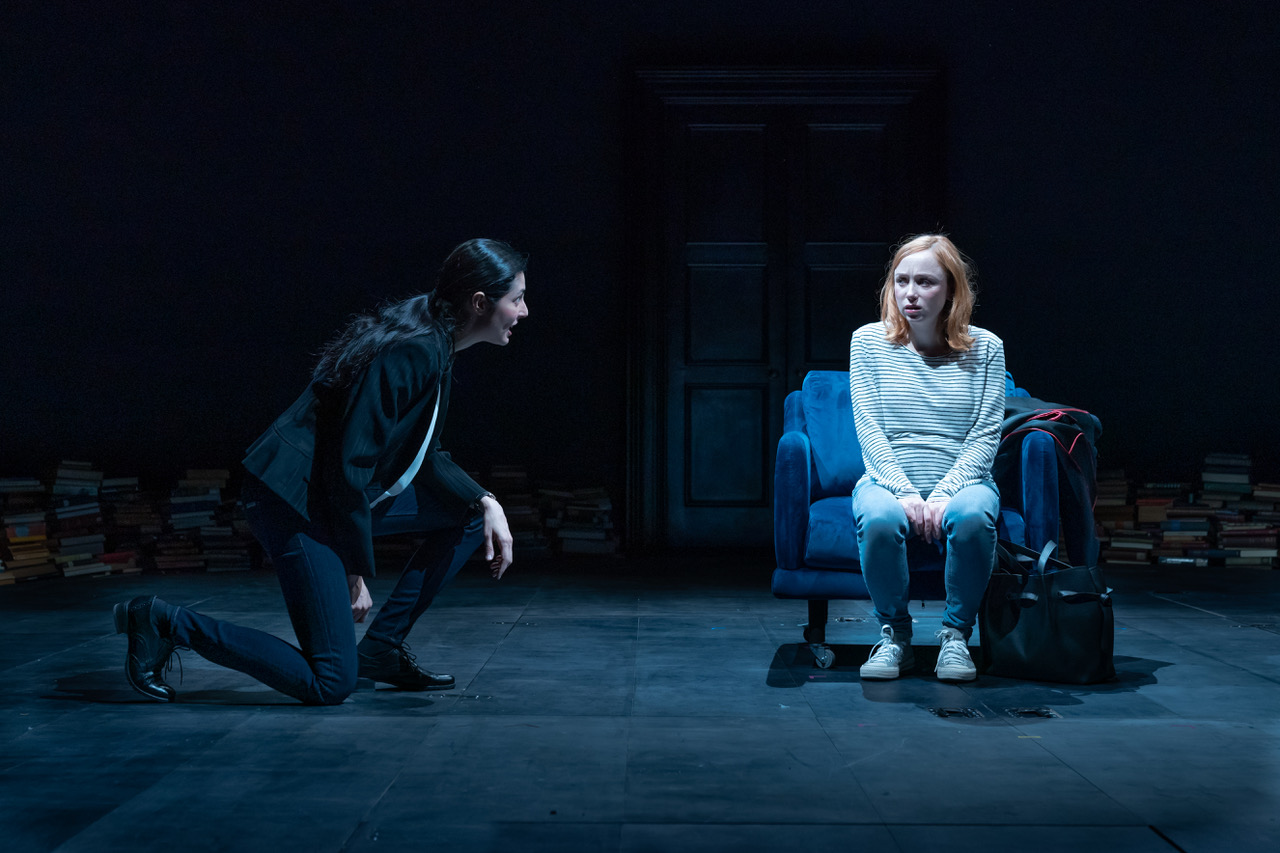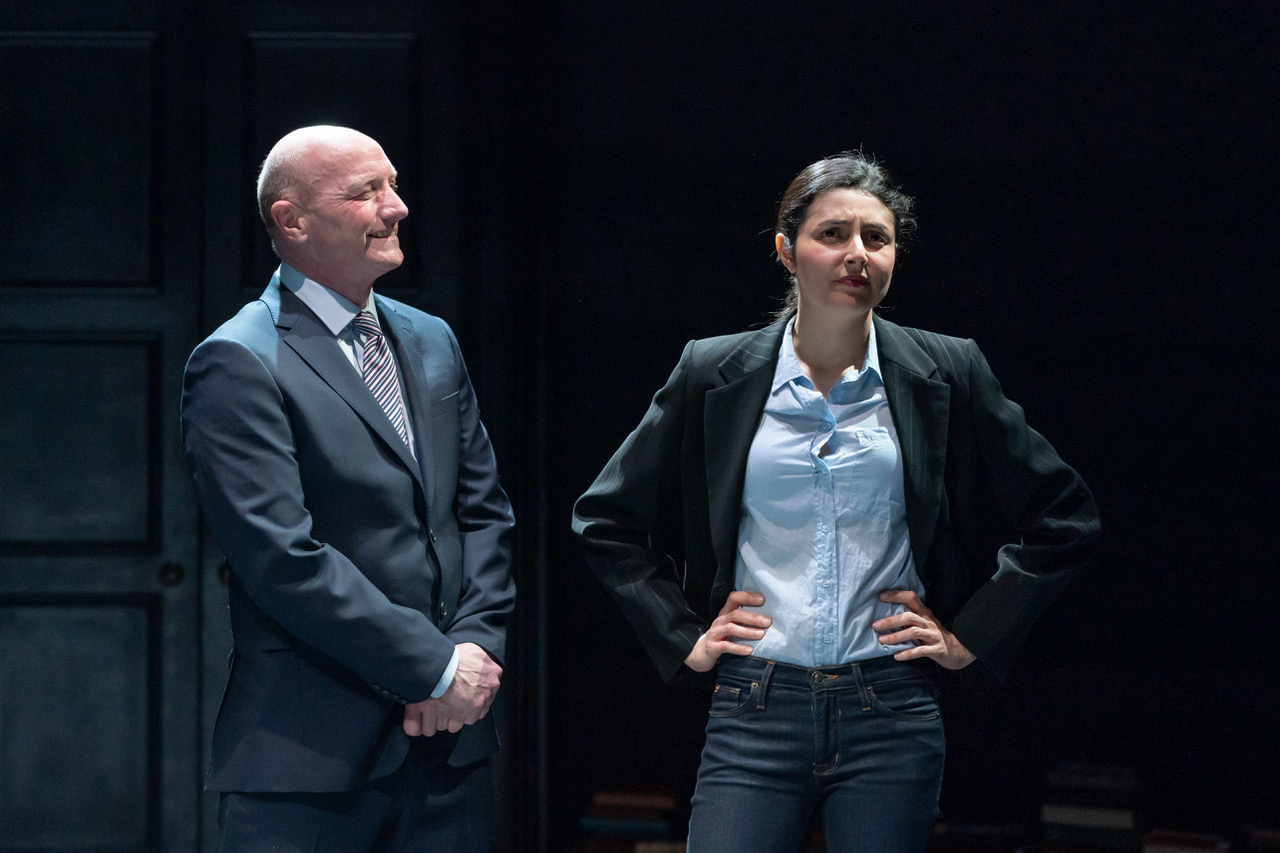The story of a gifted cleaner with a pipedream to study at Oxford University provides the narrative backdrop to Jude written by Howard Brenton which examines genius, language, identity and what it is to be ‘the other’.
This whistle-stop coverage of so many issues and themes prevents their exploration in any depth and makes the play seem disjointed.
The play, which is loosely based on Thomas Hardy’s Jude the Obscure, centres Judith Nasrani (Isabella Nefar), a young Syrian cleaner who is caught trying to steal a copy of Euripides from her client Sally (Emily Taafe). Sally, who is a classics teacher, is surprised that her cleaner is stealing a book by an ancient Greek playwright, and then even more surprised when she learns Judith can translate the Greek flawlessly. She makes it her mission to teach the gifted Judith for free. Later Sally dumps her when she gets her own opportunity to move away, study and teach at Oxford University, something that is heartbreaking to Judith.
We get hints of Judith’s troubled background in her relationship with Sally and her boyfriend Jack played convincingly by Luke MacGregor. Judith is an immigrant and a refugee from Syria. We are constantly reminded of her ‘outsider’ status and ‘foreignness’ throughout the play. This echoes themes in Euripidean drama, the playwright whose book she tries to steal in the opening scene. Howard Benton appears to be making a criticism about liberals and their attitude towards ‘otherness’ whether that’s based on class, residential status, or even nationality. However the audience gets a rather two-dimensional picture of Judith and therefore the audience simply sees her through the same lens as the characters in the play which is a shame.
This theme of ‘otherness’ is just one of many that the play touches on. The play also examines the impracticality of genius for real life. Judith’s inability to compromise makes her difficult to handle and her original thoughts are immediately dismissed as unoriginal by the academics in the play who also attempt to moderate Judith’s thinking and temperament. It also explores the work of Euripides, who even appears as a character. In addition, the play references Hardy’s original novel, considers language and how it helps to inform identity, and the impact of living in a surveillance society. This whistle-stop coverage of so many issues and themes prevents their exploration in any depth and makes the play seem disjointed.
The pacy second act keeps us entertained as the play moves to its conclusion
That said, the pacy second act keeps us entertained as the play moves to its conclusion and the mysterious characters introduced in act one, provide a strange and surprising plot twist in act two.
Stripped back staging lets the focus sit on the characters and the narrative, but exposes the weaknesses in both.
Standout performances go to Luke MacGregor who delivers a credible turn as the confused boyfriend Jack, to the lead Isabella Nefar as Judith and to Caroline Loncq played by Oxford Scholar Deidre.




























